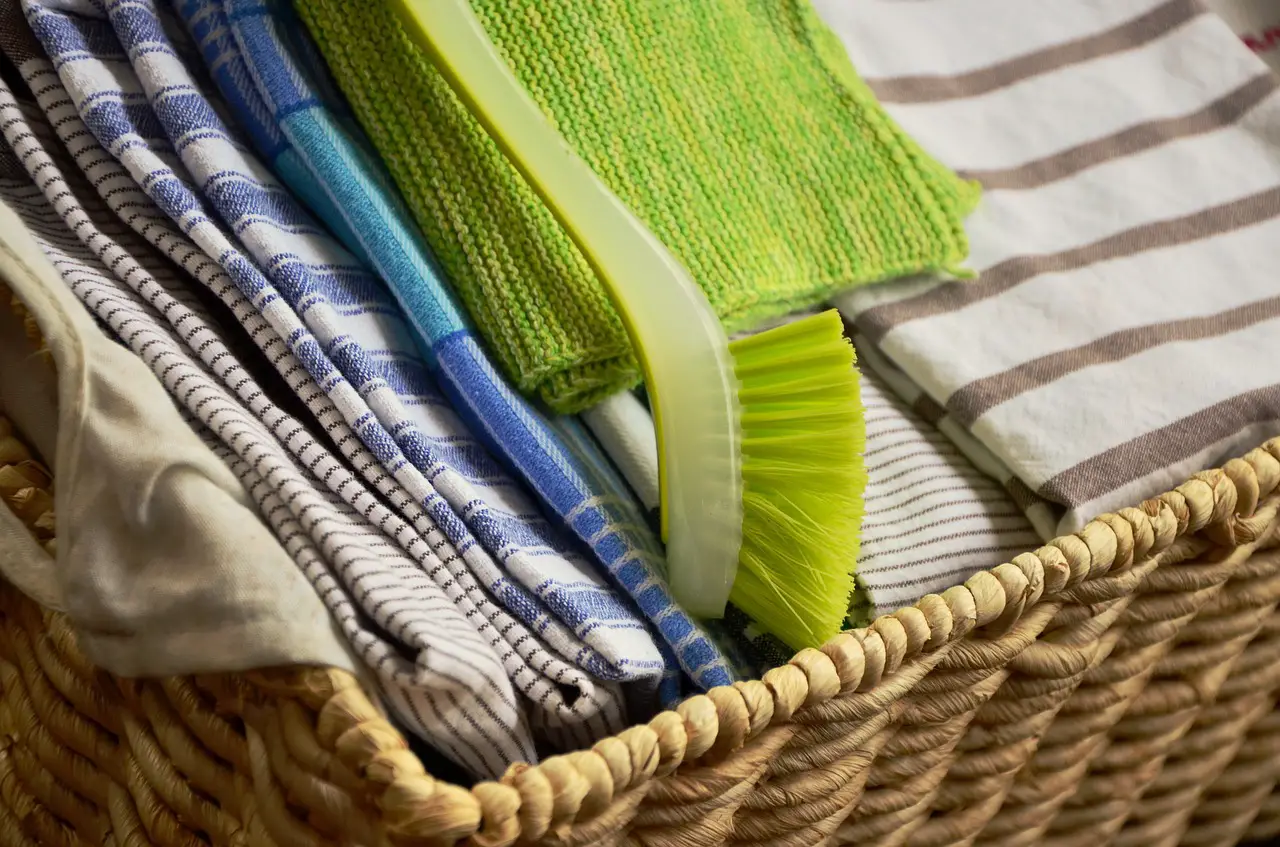The kitchen sponge has been used for thousands of years, but it is only recently that the importance of using a sponge in the kitchen has come to light espcailly with the advent of diferent kind of sponges like coconut, hemp, bamboo, silicone etc.
Cleaning with just water and your bare hands is fine for some things, but if you want your dishes to sparkle, or if you are cooking something particularly greasy or sticky, sponges are really great.
However, in this post, we’ll talk about are dishcloths better than sponges?
Let’s get started!
Are Dishcloths Better Than Sponges?
The answer to this is not really simple.
Sponges have a texture that attracts dirt and germs. The more you use a sponge, the dirtier it gets and the more germs it will hold.
When a sponge becomes a mess, you can toss it in the trash, but dishcloths are better in this way. Washing a sponge will not clean better as compared to dishcloths. Mainly because of the complex structure of the dishcloths.
But overall, dishcloths are not better than sponges the way they clean is not really effective than there sponges counterpart.
3 Best Natural Sponges
3 Best Dish Cloths
- Ritz 100% Cotton Terry Kitchen Dish Towels
- T-fal Textiles Cotton Flat Waffle Dish Cloth
- Swedish Wholesale Swedish Dish Cloths
· Sponges Pros And Cons
1. CLEAN AT A MICROSCOPIC LEVEL
A common household sponge is an excellent way to clean your dishes and utensils. However, did you know that it can also be used to clean your entire house?
The trick to cleaning with sponges is in their microscopic pores. These pores trap dirt and grime, allowing them to be washed away when you use warm water and a bit of soap. When rinsed after each use, your sponges will stay cleaner for longer and require less frequent replacements than if they had been used on their own.
Because of microscopic level precision sponges clean way better than any other cleaning products.
2. CLEAN EVENLY
Kitchen sponges, or dishcloths, are a hotbed for germs and disease. While they may be good for cleaning your dishes, the majority of their life is spent soaking in water and sitting on your countertops — two breeding grounds for bacteria. Kitchen sponges get wet frequently and provide a safe place for microbes to grow.
A recent study even found that kitchen sponges contain 14 times more bacteria than the average toilet seat! Because every time you use it to wipe off your plates and pans, you’re also spreading harmful bacteria around your kitchen surfaces.
But the good part about sponges is that they clean the surfaces evenly and don’t left patches at all.
· Dishcloths Pros And Cons
3. EASY TO CLEAN
Dishcloths are easier to clean than sponges. The biggest problem with sponges is that they get slimy and gross after a while, and can even host bacteria because of the way they’re used in the kitchen.
Dishcloths don’t get this way because they dry out between uses.
We’re not saying you should throw your sponge away today; if it works for you, keep using it. If you want to switch over to dishcloths though it’s a good choice for sure.
4. DRIES QUICKLY
Sponges are difficult to dry after washing and they become full of microbes when not dried. Dishcloths, on the other hand, can be hung up or folded in such a way that it dries quickly.
Sponges need to be replaced often because every time you use them, they lose their ability to clean effectively. They become less effective with each wash and must therefore be replaced frequently.
On the other hand, dishcloths only need to be washed once a week and last much longer than sponges do.




